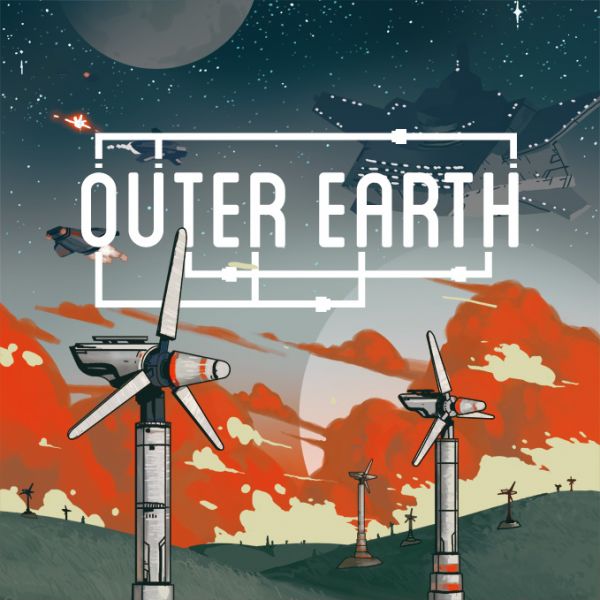Independent Creator Pursues New Career After Game Development Competition

Sometimes interest in a new activity or profession hits suddenly and unexpectedly. This seems especially true for graphic designer and photographer Paul Tseng whose passion for tabletop game development led him to successfully fund his project Outer Earth on Kickstarter back in 2015, and eventually making it to the Amazon storefront .
The sci-fi styled card game has players representing competing terraforming companies looking to build the most hospitable environment in which to sell to new colonists. It was based on a concept Tseng developed for a game development competition in 2013. The competition was hosted by the creators of Cards Against Humanity and was aptly titled the Tabletop Deathmatch. Outer Earth’s current iteration is a simplified version of the original concept that focuses on resource management, victory points, and a secret bidding mechanic.
We sat down with Tseng to hear about the origins of Outer Earth, his experiences with the Tabletop Deathmatch competition, and his advice to other interested game developers.
Jesse Tannous: What is the origin story of Outer Earth? Where did you draw inspiration from?
Paul Tseng: I started Outer Earth as a competition entry. It initially started off as a time traveling game, which then slowly over time evolved into a game about terraforming planets. It sounds like a big leap but it was multiple small changes that made it into what it is today.
I can pinpoint my main inspiration to Race for the Galaxy. The space theme, iconography and card illustrations are some things I LOVE about that game. As Outer Earth developed over time, inspiration started coming from the game design process itself. Trying to streamline gameplay, simplify mechanics and engage players forced me to do research into other games and see how they successfully achieved the elements I wanted in Outer Earth .
JT: How did you get interested in tabletop game development?
PT: I entered a competition hosted by Cards Against Humanity, which was called the 2013 Tabletop Deathmatch (TTDM). As a graphic designer, I had been searching for a place to apply my skillset and that’s where the TTDM came in.
I went in with the mindset of “why not, sounds like fun” and started designing Outer Earth two months before the competition deadline. I usually like to work under pressure as it forces me to create a final product.
It was only after being a finalist and attending the 2013 Gen Con that I started considering tabletop game design as a real hobby. After the convention, I constantly kept improving Outer Earth on a part-time basis that’s when I realized that I clearly had a passion for game design.
JT: What sort of advice would you have for other game developers stepping into their first major project?
PT: Make a smaller first game. I know you have a grand plan brewing up in your head but the experience of developing a game from start to finish is too valuable to postpone for your “perfect” game creation.
Don’t be afraid to reach out to your local community to see if they have any game design specific events. I partake in a monthly board game designer night at Snakes & Latte (a board game café in Toronto). Reccurring events help you stay focused over a long period of time!
Work under deadlines. Competitions are great as you are forced to create something within a timeline and contest restrictions.
JT: As a designer what lessons and experiences did you take away when participating in the Tabletop Deathmatch competition?
PT: A few things that I learnt from the TTDM include: There are tons of other board game designers out there, go and befriend them one by one! Always keep an open mind to feedback, however you are the designer that chooses if you want to use the feedback or not. Don’t get too defensive!
JT: How important was the successful funding of your Kickstarter campaign to the future of Outer Earth ?
PT: Successfully funding Outer Earth meant that I could treat game design as more than just a hobby! Since I am in charge of running the Kickstarter, promotion, game & graphic design, manufacturing and distribution, being able to say that I have successfully run and deliver a Kickstarter was great for my future in the tabletop scene!
[End of interview.]
While Tseng’s focus on tabletop game development was a recent development his experience seems to show that passion and dedication can pave the way for some truly exciting opportunities. Make sure to check out the full update history for this project by visiting the official Backerkit website.




